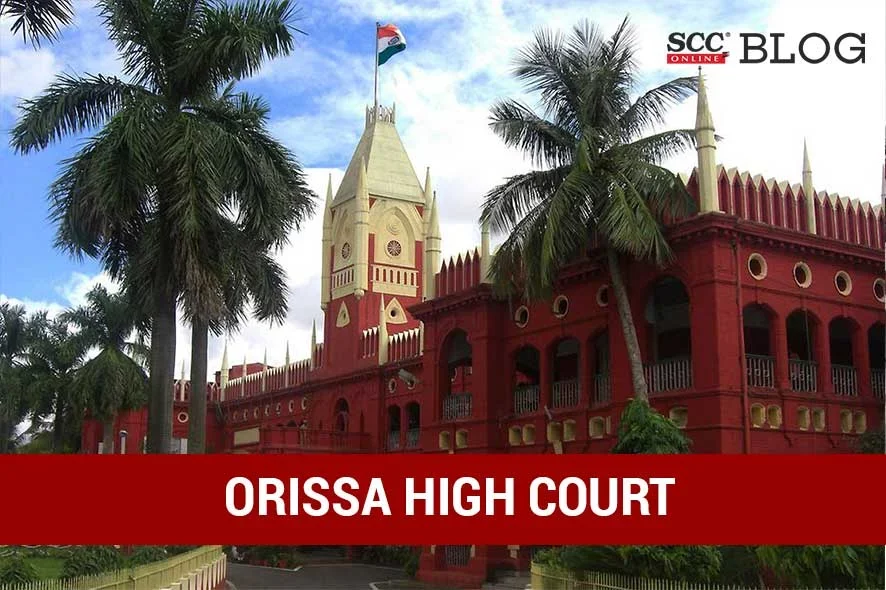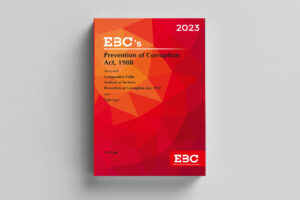Orissa High Court: In a criminal application under Section 482 of the Code of Criminal Procedure, 1973, (‘CrPC’) seeking to quash the order passed by the Trial Court whereby, the accused persons were remanded to custody for offences under Section 13(2) read with Section 13(1)(c) of the Prevention of Corruption Act, 1988 (‘PCA’) and Sections 409/468/471/477-A/120-B of the Penal Code (‘IPC’) and sought a direction from the Court to give effect to the anticipatory bail order passed by it. V. Narasingh*, J., set aside the impugned order of Trial Court and the interim order of the anticipatory bail was made absolute till the conclusion of the Trial on the terms fixed.
FACTUAL MATRIX
On 15-12-2021 a First Information Report (‘FIR’) was registered against the accused and three others alleging the commission of offences under Section 13(2) read with Section 13(1)(c) of the PCA and Sections 409/468/471/477-A/120-B of the IPC which was registered in the Court of Special Judge Vigilance, Bhawanipatna. The accused being public servants allegedly committed criminal conspiracy with some subordinate officials misappropriating a sum of Rs. 23,63,940 which were allotted for plantation of seedlings causing wrongful loss to the Government.
Anticipating their arrest in this matter, the accused persons filed an anticipatory bail application before the High Court, which was granted by the order dated 24-01-2022.
Thereafter, the Trail Court took cognizance of the offence and issued summons pursuant to which the accused appeared on 20-02-2023 and filed another bail application. The Special Judge rejected the accused persons’ prayer for bail and ordered to remand them to custody.
Hence, the accused persons approached the Court on grounds that the Special Judge lost sight of Section 438(3) of the CrPC whereby, the Trial Court was required to issue a bailable warrant in the face of the order passed by the Court under Section 438(1) of the CrPC.
ANALYSIS
The Court said that the impugned order of the Trial Court remanding the accused persons in custody, when anticipatory bail was granted by the Court, was ex-facie illegal in the light of Sushila Aggarwal v. State (NCT of Delhi), (2020) 5 SCC 1, wherein it was held that anticipatory bail once granted shall normally continue till end of trial and an anticipatory bail order doesn’t usually expire when the accused is summoned or when charges are framed, and it can extend until the trial concludes. However, in special circumstances, the Court can limit the tenure of the anticipatory bail if warranted.
The Court further said that the Trail Court’s finding that the accused did not cooperate was not maintainable as there was no reason for the Trial Court to remand the accused persons in custody and rather they should have been released by executing bail bond with the conditions the Trial Court deemed proper.
The Court referred to Islamic Academy of Education v. State of Karnataka, (2003) 6 SCC 697 which set out the principle of interpretation of judgment, which said that a judgment is not to be read as a statute and the ratio decidendi is distinct from the relief granted or the manner adopted for its disposal.
Regarding the application of Section 482 of the CrPC, and the contention that the only remedy available to present accused persons was under Section 439 of the CrPC and the present application under Section 482 of the CrPC was not maintainable, the Court stated that in the present case when the accused persons were remanded even in the face of an order of anticipatory bail being granted by the Court, on flawed interpretation of the order and being unaware of the law governing the field, the self-imposed restriction would not deter the Court from exercising its inherent jurisdiction to promote justice.
The Court deliberated on the issue that whether the accused needed to surrender before the Trial Court, to be released on bail and relied on Sundeep Kumar Bafna v. State of Maharashtra, (2014) 16 SCC 623, wherein, the word ‘custody’ was analysed in detail. The Court held that by the virtue of interim bail granted, the accused are deemed to be in constructive custody of the Court and therefore the Court set aside the impugned order of Trial Court and the interim order was made absolute till the conclusion of the Trial on the terms fixed.
Before parting with the case, the Court noted that the manner in which the impugned order was passed by the Trial Court disregarding the anticipatory bail order of the High Court. The Court said that the Justice delivery module of the Countryfollows a hierarchical system in which the subordinate Court has a bound duty to follow the direction issued by the higher Court, without which the judicial discipline would go haywire.
The Court noted that while passing the impugned order the Trial Court re-examined the allegations on merit and this conduct disregarded the hierarchical structure crucial for public trust in the legal system and engaging in such judicial adventurism and overreach must be avoided to prevent the collapse of the justice system’s foundation.
[Susanta Kumar Samantaray v. State of Odisha, 2023 SCC OnLine Ori 6661, Judgment Dated: 18-12-2023]
*Judgment authored by: Justice V. Narasingh
Advocates who appeared in this case :
For Appellant: Senior Advocate, Mr. H.K. Mund
For Respondent: Standing Counsel (Vigilance), Mr. N. Maharana









